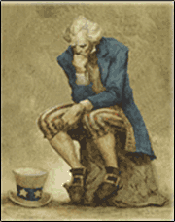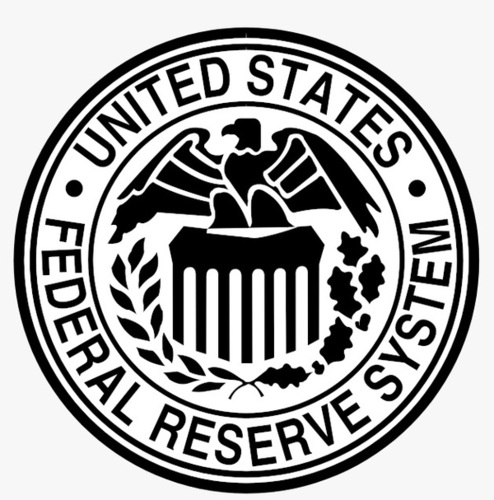
–>
August 4, 2022
Economists have debated the causes of the Great Depression since its occurrence. Central to these discussions has been the role of the Federal Reserve. Has it been positive or negative? Similar questions pertain to current economic policies.
‘); googletag.cmd.push(function () { googletag.display(‘div-gpt-ad-1609268089992-0’); }); }
The economics profession has mixed answers on the efficacy of the Fed regarding economic performance. Free-market-oriented economists argue that Fed meddling caused the Depression. Keynesians, an interventionist school birthed during the Depression, disagree.
Dissenting Economic Views
Milton Friedman, who provides his observations, led the Chicago School. Thomas Sowell is sympathetic to Friedman’s position. Both Friedman and Sowell are empiricists, which means they require all claims to be validated with data. The simple OJ Simpson glove test, “If the data doesn’t fit you must acquit!” applies to everything.
‘); googletag.cmd.push(function () { googletag.display(‘div-gpt-ad-1609270365559-0’); }); }
The Austrian School (Mises, Hayek, and Rothbard) approach is less empirical and more logical. They explain why centralized management of an economy never works and use the Fed as a prime example. (A highly recommended Austrian vs. Keynesian debate over the necessity of the Federal Reserve is available here.)
In 1952, Ludwig von Mises provided one of his milder views of central banking:
The people of all countries agree that the present state of monetary affairs is unsatisfactory and that a change is highly desirable… The destruction of the monetary order was the result of deliberate actions on the part of various governments. The government-controlled central banks and, in the United States, the government-controlled Federal Reserve System were the instruments applied in this process of disorganization and demolition. Yet without exception all drafts for an improvement of currency systems assign to the governments unrestricted supremacy in matters of currency and design fantastic images of superprivileged superbanks… The inanity of all these plans is not accidental. It is the logical outcome of the social philosophy of their authors.
The Case Against the Fed, by Murray Rothbard, is an excellent review of the Austrian position and is free in PDF format.
The Keynesian School, birthed during the Great Depression, argues that economic intervention provided by the Federal Reserve (and fiscal policy) is necessary to guide and correct the errors of free markets. According to this school, markets left on their own will produce suboptimal outcomes. Government oversight and intervention is required for better outcomes.
This debate of free markets versus interventionist management is not new. It undoubtedly preceded economics, beginning with debates over the formation of first governments.
‘); googletag.cmd.push(function () { googletag.display(‘div-gpt-ad-1609268078422-0’); }); } if (publir_show_ads) { document.write(“
“Proof” is Impossible
The evidence that the Fed has not been a positive influence is strong but cannot be “proved scientifically.” Unfortunately, the social sciences (economics included) are complex compared to the physical sciences.
Common sense, however, does not depend on theoretical proof. You don’t need to know why it hurts when you bang your head against the wall. You stop because the pain goes away! Similar common sense should apply to the Federal Reserve. It has never met its stated objectives. Matters have gotten worse since its creation and deterioration is speeding up.
Doesn’t common sense suggest that it is highly likely the cause of the pain? Abolish it!
Mathematics vs. Economics
Social science may not provide proof, but mathematics can. Proof in this area does not involve blame or cause and effect. It dispassionately conveys what can and cannot be. Mathematics says that the intended destination is impossible!
Here is the economic bind: The Fed must raise interest rates and/or lower the money supply to reduce the rate of inflation. That is the only way to stop it! Doing either will slow inflation, but doing either will create insolvency (missed payments of government obligations) on an already bankrupt Federal Government.
We cannot wish or legislate the mathematical bind away. It is as real as physical constraints that prevent us from flying without help. The numbers don’t work and mathematics doesn’t care about economics or politics. It is immutable. As Clive Hale recently pointed out:
…[the Fed] raising rates in Volckerish fashion to properly combat inflation… would bankrupt the US government. Not something they are inclined to do, nor that the government would allow.
As an example, of the $23 trillion in outstanding US Treasuries (February 2022) 30% will mature in less than 12 months. After raising rates by 75 basis points on Wednesday, the Fed has raised rates by 2.25% since March 15, 2022, an annual rate of increase of 6.75% (2.25% over 4 months x 3). Here’s where this creates an additional problem for the Fed and Treasury. Assuming a 6.75% annual rate (modest compared with the policy Volcker carried through in the late70s – early 80s) = $465 billion more in interest expense, 12 months from now. $465 billion is ~12% of all-time record tax receipts from 2021; assuming the same 20% decline in tax receipts in a plain vanilla recession would make $465 billion = 14% of forward tax receipts.
That would take entitlement spending plus interest rate expense towards 90% of US tax receipts. Assuming a 20% decrease in tax receipts, which Yellen has flagged by observing that they are now slowing down having said three months ago that they were going up, could raise that 90% estimate to 135% of tax receipts. Arguably the US is already bankrupt ex the fact that they have a money printing press.
That the Federal Government overborrowed with $31Trillion ($7 Trillion on Fed balance sheet) in funded debt and somewhere between another $100 and $200 Trillion in unfunded obligations (primarily Social Security, Medicare and Medicaid) growing rapidly suggests a tragic ending is likely inevitable.
Each 1% point rise in interest rates drives government interest payments up by $300 billion per year on existing funded debt alone (most of this debt is short term, meaning these effects are not far ahead). We have already had a 1.5% percentage-point rise with more promised.
New debt is accumulating by the day, which makes matters worse. It has barely affected stock market valuations — yet! Nor has it slowed inflation.
More needs to be done if inflation is to be returned to reasonable numbers. That is the economic solution required. Unfortunately, mathematics tells us current actions cannot work and sovereign defaults lie ahead. Get ready for a very bumpy and dangerous future. This cannot and will not end well!
Monty Pelerin blogs at Economicnoise.com.
Image: Federal Reserve
<!– if(page_width_onload <= 479) { document.write("
“); googletag.cmd.push(function() { googletag.display(‘div-gpt-ad-1345489840937-4’); }); } –> If you experience technical problems, please write to [email protected]
FOLLOW US ON
<!–
–>
<!– _qoptions={ qacct:”p-9bKF-NgTuSFM6″ }; ![]() –> <!—-> <!– var addthis_share = { email_template: “new_template” } –>
–> <!—-> <!– var addthis_share = { email_template: “new_template” } –>






